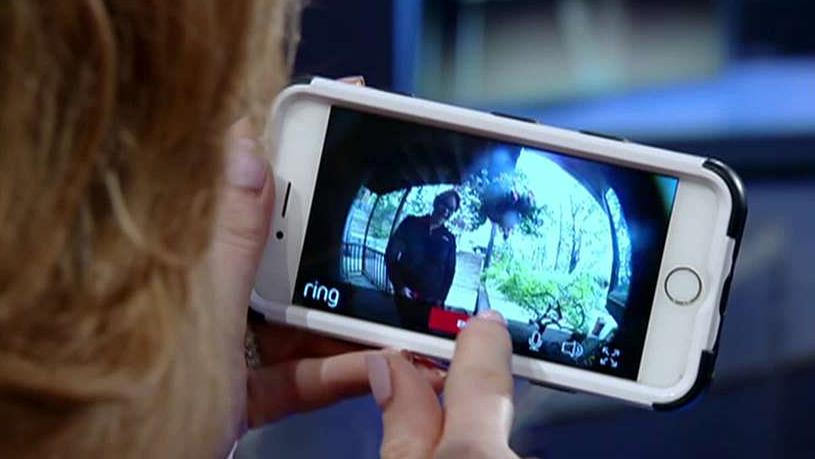Amazon's Ring partners with police, making some worry about privacy
Ring, the doorbell maker behind numerous viral videos in the past few years, has been partnering with police departments around the country as local law enforcement officials work to identify suspects and solve crimes.
Ring’s doorbells stream video to an owner’s phone or computer when someone presses the doorbell or triggers motion sensors. With its Neighbors app, Ring owners can share their video with others who live nearby — and the police, if they the owners choose.
The company, which is owned by Amazon, says its mission is “make neighborhoods safer.” Working with law enforcement agencies is just one way of doing that, a Ring spokesperson told FOX Business. The company hasn’t shared the number of police department it has worked with, but local news stories across the country detail how departments have promoted Ring’s app and devices in their communities. Police in Wolcott, Connecticut, recently raffled off a couple of Ring doorbells. Police Chief Ed Stephens told the Associated Press that he’s willing to try “anything that helps keep the town safe.”
In Prince William County, Virginia, FOX 5 DC reported about 17,000 people have signed up for the Neighbors app. Police there have also partnered with Ring to access video shared on the app.
Police can see a “heat map” that shows the area where Ring cameras are approximately located, but have to contact the company to see if the resident is willing to share, the AP reported.
There are clear benefits for law enforcement. Police across the country have credited Ring video with helping them identify suspects in crimes, like a woman in Mississippi who was recently accused of stealing items from a porch and a Denver man accused of using a pickaxe to break into a garage. In Texas, police said they identified a man who had been hitting a woman thanks to a neighbor’s Ring video. There are countless reports of similar cases from communities all over the U.S.
But Ring’s growing popularity and the ease of sharing the videos its devices record with authorities and others has raised concerns among some about privacy.
Chris Gilliard, an English professor in Michigan, told the AP that the cameras rely on fear of crime over actual crime.
“Amazon if profiting off of fear,” he said.
The American Civil Liberties Union has also raised concerns about the cameras. In one blog post, the group said the cameras could potentially be hacked. In another, they said the cameras, if paired with facial recognition technology, could provide the infrastructure for “a massive decentralized surveillance network.”
Some police departments have also chosen to not partner with Ring because they don’t want to share data with the company or anyone else, the AP reported.
In Coon Rapids, a Minneapolis suburb, police instead opted to keep their own private list of local homeowners willing to share their video for investigations, according to the report.
Ring said it values its users' privacy and its customers control their data.
"Ring customers and Neighbors app users decide what footage is shared to the Neighbors app, and whether or not they want to share any footage or information with law enforcement," a company spokesperson said. "We are proud to have partnerships with many law enforcement agencies across the country and have taken care to design these partnerships in a way that keeps users in control."




















